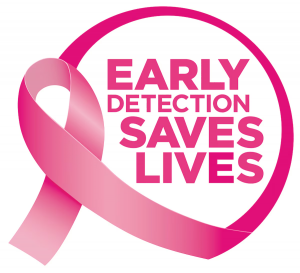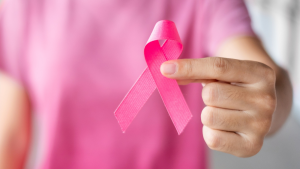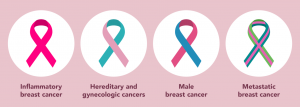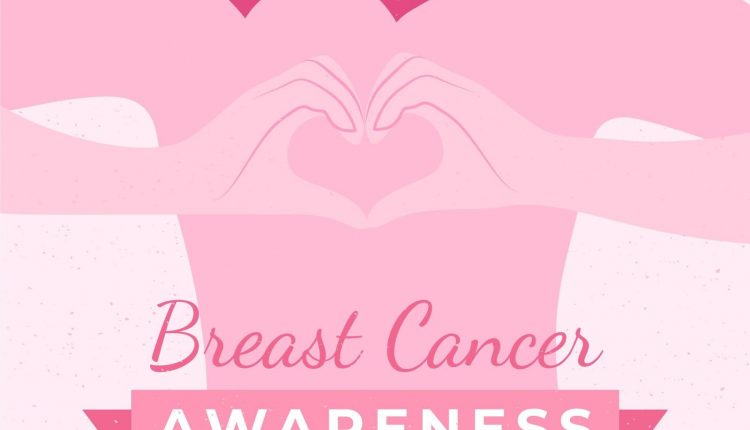Raising Awareness and Saving Lives This October
Join the Fight Against Breast Cancer This October
Every October, the world comes together to observe Breast Cancer Awareness Month. It’s a time to raise awareness, support those affected, and highlight the importance of early detection. Breast cancer is one of the most common cancers among women, but with greater knowledge and improved screening techniques, survival rates have significantly improved. This month is dedicated to empowering people to learn more, share stories, and contribute to the global fight against breast cancer.
Understanding Breast Cancer
Breast cancer happens when cells in the breast grow uncontrollably. These cells usually form a tumor that can often be felt as a lump or detected on a mammogram. While most breast cancers start in the milk ducts (ductal carcinoma), some begin in the glandular tissue (lobular carcinoma).
Both women and men can get breast cancer, though it is much more common in women. About one in eight women will develop breast cancer at some point in their lives, and the disease can occur at any age, though the risk increases as people get older.
Why Awareness Matters
Raising awareness about breast cancer saves lives. Early detection through screening like mammograms increases the chance of successful treatment and survival. Breast Cancer Awareness Month encourages women to check their bodies, get regular screenings, and know the symptoms. The earlier breast cancer is caught, the better the chances of beating it.
While treatment has improved over the years, it’s crucial to keep spreading the word. Many people still don’t get regular check-ups, and some don’t know about the available support or treatment options. Awareness can change that.

A Global Health Issue
Breast cancer isn’t just a personal or national issue—it’s a global health challenge. According to the World Health Organization (WHO), breast cancer is the most common cancer in women worldwide, impacting millions of people every year. While countries with strong healthcare systems have better access to early detection and treatment, many women in low- and middle-income countries do not have the same opportunities. In these regions, breast cancer is often detected at later stages, making treatment more difficult and less successful.
Efforts to raise global awareness and improve access to screening and treatment are critical. International organizations work tirelessly to bring breast cancer prevention and care to communities in need, but much more needs to be done. Breast Cancer Awareness Month offers a platform for discussing these global disparities and finding ways to bridge the gap.
Myths and Misconceptions
Despite all the awareness efforts, there are still many myths and misconceptions about breast cancer that persist. One common myth is that only women with a family history of breast cancer are at risk. While a family history does increase risk, the reality is that most women who develop breast cancer have no family history of the disease. This misconception can lead to women underestimating their risk and neglecting to get screened.
Another widespread myth is that breast cancer only affects older women. While age is a risk factor—most breast cancer cases are diagnosed in women over 50—young women can also develop breast cancer. It’s important for women of all ages to be aware of their breast health and report any unusual changes to their doctors, regardless of their age or family history.
The Emotional Side of Breast Cancer
Breast cancer is not just a physical battle—it takes an emotional toll as well. The diagnosis can bring a whirlwind of feelings, including fear, uncertainty, and anxiety. Patients may worry about their treatment, their families, and their futures. Coping with these emotions can be incredibly challenging, and emotional support becomes as important as medical treatment.
Many women benefit from counseling and support groups, where they can connect with others going through the same experiences. Emotional support can come from friends, family, or professional therapists, but it’s crucial for patients to have a support system in place. During Breast Cancer Awareness Month, many organizations offer resources for emotional support, helping patients and their families cope with the psychological impact of the disease.
Early Detection Saves Lives
One of the key messages of Breast Cancer Awareness Month is that early detection saves lives. When breast cancer is detected early, it is more likely to be treated successfully. In fact, the five-year survival rate for localized breast cancer—cancer that hasn’t spread beyond the breast—is about 99%. However, this survival rate drops dramatically once the cancer spreads to other parts of the body.
Encouraging regular mammograms, breast self-exams, and clinical breast exams can lead to earlier detection. Many countries and organizations run free or low-cost screening programs during Breast Cancer Awareness Month to ensure more women have access to these life-saving tests. The goal is to make sure that every woman, regardless of her background or income level, has the chance to catch breast cancer early.
Celebrating Survivors
Another important aspect of Breast Cancer Awareness Month is celebrating the survivors. These are the women and men who have faced breast cancer, undergone treatment, and come out on the other side. Their stories of strength, courage, and resilience serve as powerful reminders that breast cancer can be beaten.

Survivors often become advocates, using their experiences to inspire others and raise awareness. They share their stories at events, participate in fundraising walks, and help guide those currently battling the disease. Breast Cancer Awareness Month is a time to honor these survivors and recognize the role they play in the fight against breast cancer.
The Power of Community
One of the most powerful aspects of Breast Cancer Awareness Month is how it brings people together. Communities, businesses, and individuals from all walks of life come together to support a common cause. From wearing pink ribbons to organizing charity events, these collective efforts demonstrate the strength of unity.
Local communities often hold walks, runs, and fundraisers to support breast cancer research and treatment. These events provide an opportunity for people to show solidarity with those affected by breast cancer. Whether you are directly affected or simply want to help, participating in these events makes a real difference. It reminds those battling the disease that they are not alone.

Men and Breast Cancer
While breast cancer is more commonly associated with women, it’s important to remember that men can get breast cancer too. Male breast cancer is rare but does occur, and it can be just as dangerous. Men are often less likely to consider breast cancer as a possibility, which can lead to delays in diagnosis and treatment.
Men who notice a lump in their chest, changes in their nipple, or other unusual symptoms should see a doctor right away. During Breast Cancer Awareness Month, it’s important to raise awareness that breast cancer doesn’t discriminate by gender and that men need to be aware of their risks too.
The Role of Genetic Testing
Genetic testing has become an increasingly important tool in the fight against breast cancer. For individuals with a family history of breast or ovarian cancer, genetic testing can identify mutations in the BRCA1 or BRCA2 genes, which significantly increase the risk of developing breast cancer. Knowing whether you carry these genetic mutations allows you to take proactive steps, such as more frequent screenings, preventative medications, or even preventative surgery.
While genetic testing is not necessary for everyone, it can provide peace of mind for those at higher risk. Discussing the option with a healthcare provider can help you determine if genetic testing is right for you.
Supporting Caregivers
Behind every breast cancer patient is a network of caregivers who play a critical role in their journey. These are the family members, friends, and loved ones who provide emotional support, assist with daily tasks, and help manage medical care. Caregivers often face their own challenges, including emotional stress, burnout, and financial strain.
Breast Cancer Awareness Month is also a time to recognize the invaluable contributions of caregivers. It’s important for caregivers to take care of themselves too, seeking support when needed and taking time to recharge. Many organizations provide resources specifically for caregivers, helping them navigate the complex journey of supporting someone with breast cancer.
Getting Involved
There are many ways to get involved during Breast Cancer Awareness Month. Even small actions can have a big impact. Here are a few ideas:
- Donate to a breast cancer charity: Many organizations fund research, support patients, and advocate for policy changes. Even a small donation can make a difference.
- Participate in a fundraising event: Whether it’s a walk, run, or bake sale, these events raise money for breast cancer research and support services.
- Share information on social media: Use your platform to raise awareness by sharing facts, stories, and resources about breast cancer.
- Volunteer your time: Many organizations need volunteers to help with events, outreach, and patient support services.
- Encourage others to get screened: Remind your friends and family to schedule their mammograms and stay on top of their breast health.
Every action, no matter how small, contributes to the broader fight against breast cancer.
A Call to Action
As Breast Cancer Awareness Month comes to a close, it’s important to remember that the fight against breast cancer continues year-round. Awareness, early detection, research, and support are needed every day. Let October serve as a reminder to stay vigilant, get involved, and support those affected by breast cancer.
By spreading awareness, encouraging regular screenings, and supporting ongoing research, we can continue to make strides toward a future where breast cancer is no longer a threat to lives. Let’s all take part in this important cause, not just in October, but every day of the year.

